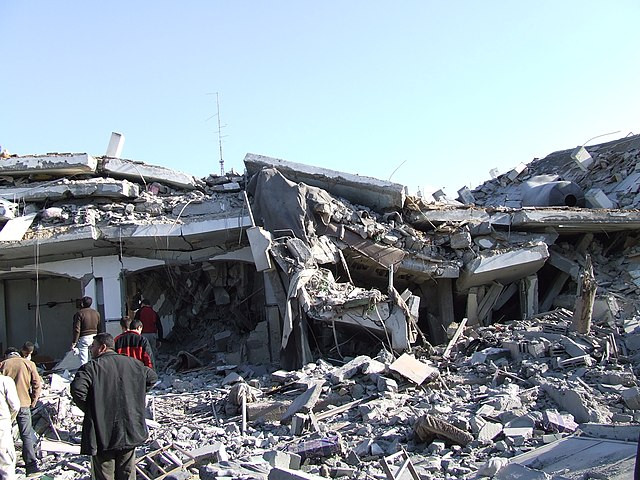The conflict in Gaza escalated further on Wednesday as Israeli airstrikes killed at least 50 Palestinians in the past 24 hours, according to Palestinian health authorities. The intensifying violence comes as U.S. Secretary of State Antony Blinken concluded his latest visit to the Middle East without securing a ceasefire, raising concerns about the ongoing humanitarian crisis in the densely populated Gaza Strip.
The Israeli military reported that its forces targeted approximately 30 sites across Gaza, including tunnels, launch sites, and an observation post. The military stated that dozens of militants were killed, and a significant amount of weaponry, including explosives, grenades, and automatic rifles, was seized. New evacuation orders were issued for civilians in Deir al-Balah, a central area in Gaza that has become increasingly dangerous due to the ongoing combat. These orders were soon followed by tank fire, which resulted in at least one fatality and several injuries, according to local medics and residents.
Despite these developments, diplomatic efforts to end the 10-month-old war between Israel and Hamas appear to be stalled. Blinken's meetings with leaders from Egypt and Qatar, both key mediators in the conflict, as well as with Israeli officials, have so far failed to yield a breakthrough. The discussions are crucial not only for halting the bloodshed in Gaza, where more than 40,000 people have been killed since October according to Palestinian sources, but also for securing the release of remaining hostages held by Hamas.
The war, which began on October 7 last year when Hamas gunmen launched a surprise attack on Israeli communities and military bases, has devastated Gaza. The conflict has led to the displacement of most of the 2.3 million residents, according to Palestinian and United Nations officials. Many are now crowded into shrinking "humanitarian zones" in central Gaza, such as Deir al-Balah, which have been repeatedly targeted by Israeli airstrikes.
The situation in Deir al-Balah has become increasingly dire as the Israeli military intensifies its operations in the area. On Tuesday, Israeli jets bombed a key market in the city, killing at least nine Palestinians. In the past week, Israeli forces have issued new ejection orders for displaced Palestinians in the region, further shrinking the already overcrowded humanitarian zone. Many families, who have been moving from one refuge to another since the war began, are now struggling to find new shelters within the ever-decreasing safe zones.
The escalation is not confined to Gaza alone. In neighboring Lebanon, tensions have flared between Hezbollah and Israel, with Israeli airstrikes hitting targets deep within Lebanon's Bekaa Valley. Hezbollah retaliated by launching rockets at Israeli military sites in the occupied Golan Heights. The Israeli military accused Hezbollah of targeting civilians and vowed to respond accordingly. In southern Lebanon, an Israeli airstrike killed a senior member of Fatah's armed wing, further raising the stakes in the region.
Meanwhile, Israeli Prime Minister Benjamin Netanyahu is facing criticism for his handling of the conflict and the stalled ceasefire talks. Reports suggest that Netanyahu's hardline stance, particularly his refusal to relinquish control of strategic corridors in Gaza, is hindering progress toward a truce. U.S. officials have expressed frustration with Netanyahu's position, with one senior Biden administration official describing his statements as "not constructive" and potentially jeopardizing the ongoing negotiations.
The Hostages Families Forum, a group representing the families of Israeli captives in Gaza, has also criticized Netanyahu for the lack of progress in securing the release of their loved ones. In a statement, the group accused Netanyahu of shifting blame onto others while failing to take responsibility for the negotiations. "The prime minister is the authority and therefore he is responsible," the forum stated, calling on Netanyahu to take direct action to resolve the situation.




